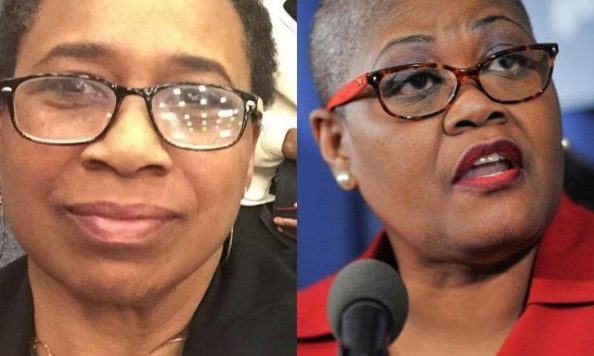Political leaders and think tanks in DC talk about ways to alleviate racial disparities. Others explore how to reduce infant mortality. We hear calls for men to be more engaged fathers. From time to time we hear concerns about keeping seniors independent. And let’s not forget the speeches about improving employment prospects for Black workers.
Right now we have an opportunity for all leaders who care about these issues to work with us to ensure timely implementation of the D.C. Universal Paid Leave Act. The intended consequences of this law include reduced racial disparities, lower infant mortality, more engaged fathers, greater independence for seniors, and higher rates of job retention.
The Universal Paid Leave Act (UPLA) became law in DC to address the reality that at some point in our lives everyone will need to take extended time off from work to welcome a new baby, recover from illness or surgery, or to care for a seriously ill family member. These expressions of love shouldn’t result in financial ruin. As medical expenses continue to be the leading cause of financial ruin, policies that proactively support family financial security are smart economic investments for local jurisdictions, especially communities with a long history of economic unfairness.
The UPLA provides job protection and economic security for times when we need it most. It covers 8 weeks for parental leave – birth, adoption, and foster placement, including the care of a child by a legal guardian or someone standing in loco parentis; 6 weeks for family leave to care for a family member and 2 weeks for one’s own medical leave. Under UPLA, low-wage earners get 90% of their wages while on leave – the highest in the country. This will ensure that all workers can actually use the program.
The Black Women’s Roundtable of the National Coalition on Black Civic Participation (NCBCP) has addressed national health and economic disparities in its recent report . And the income and race disparities in DC are well documented. They include hospitalization rates for DC’s Black residents that are 3 times higher than those of Whites, and a higher death rate from breast cancer. DC’s Black community has one of the highest infant mortality rates in the world.
Studies show paid family leave alleviates all of these conditions.
UPLA guarantees that middle-aged workers in DC who, like both of us, are more likely to be Black or Latino, will be able to proactively attend to our own health needs and those of our loved ones, which, in turn, will help to improve our health outcomes. Right now only 34% of Black families can afford to go without pay for family leave. Only 20% of Latino families can afford to go without pay for family leave
And what about making it possible for more men to be engaged fathers? Right now for most men, taking time to care for a new child or for an ill child or parent means the family will take a financial hit. We know that more men become involved in caregiving when they are able to draw a wage during that time.
 Everyone working in DC’s thriving economy deserves a good job with wages and benefits that promote pathways to the middle class and that stabilize family finances when life’s inevitable challenges arise. The Universal Paid Leave Act (UPLA) creates a strong, progressive, paid family and medical leave program that would lead the nation in what it means to center the needs of low-income families and people of color. We are calling on the DC Council and the Bowser Administration to fully fund the implementation of this important law and ensure that all families across the district can afford to take time to care for loved ones.
Everyone working in DC’s thriving economy deserves a good job with wages and benefits that promote pathways to the middle class and that stabilize family finances when life’s inevitable challenges arise. The Universal Paid Leave Act (UPLA) creates a strong, progressive, paid family and medical leave program that would lead the nation in what it means to center the needs of low-income families and people of color. We are calling on the DC Council and the Bowser Administration to fully fund the implementation of this important law and ensure that all families across the district can afford to take time to care for loved ones.
Carol Joyner is the Director of the Labor Project for Working Families and serves on the policy committee of the Black Women’s Roundtable.
Melanie Campbell is the President & CEO of the National Coalition on Black Civic Participation and Convener of the Black Women’s Roundtable.